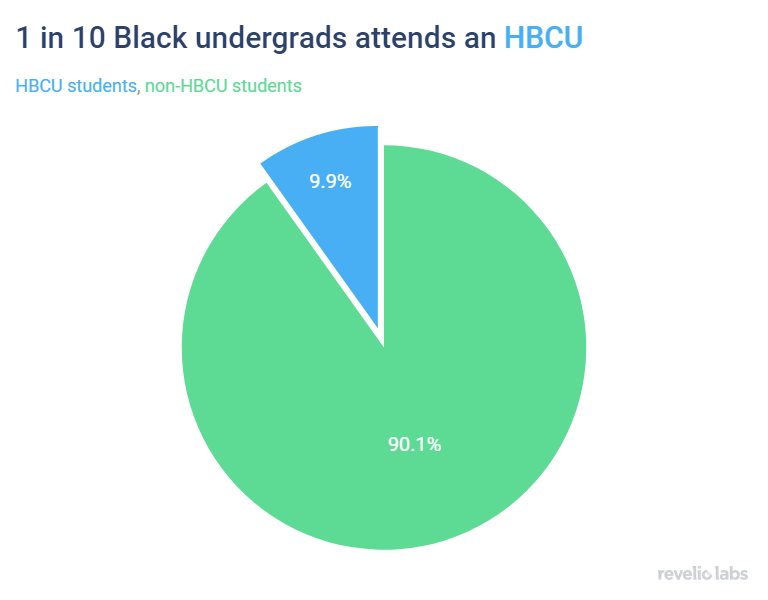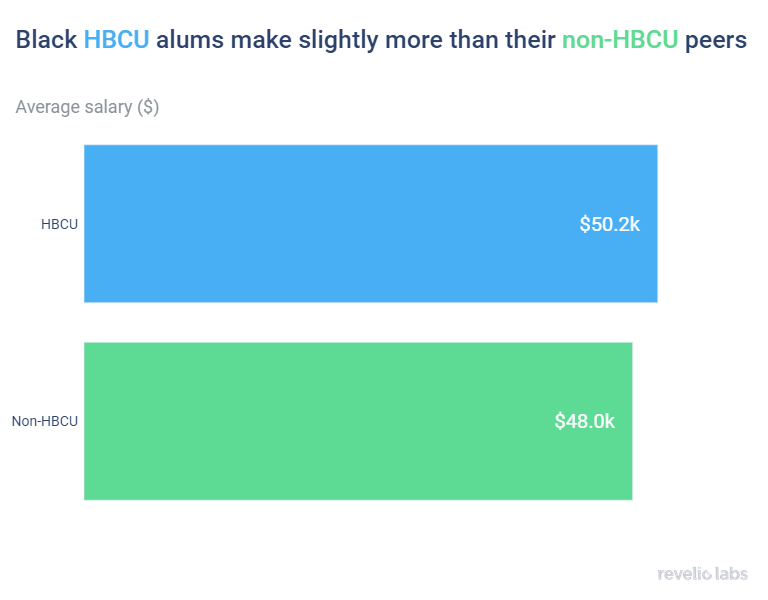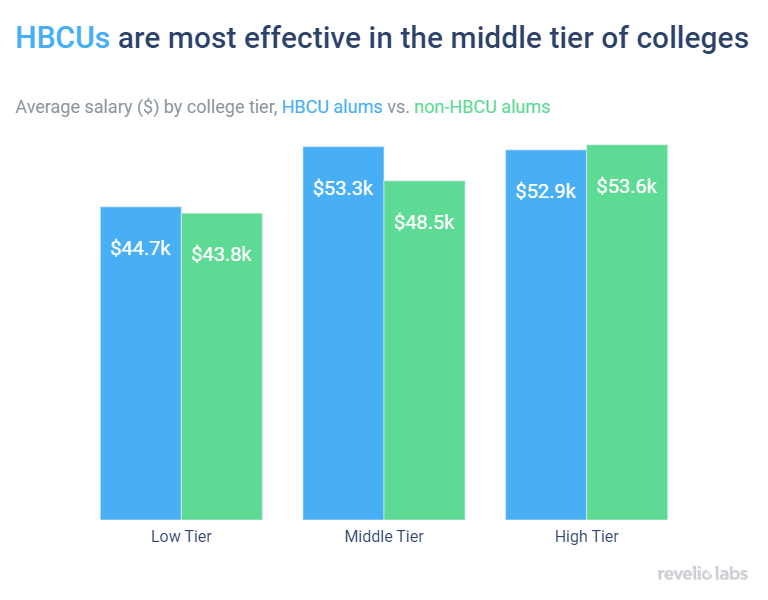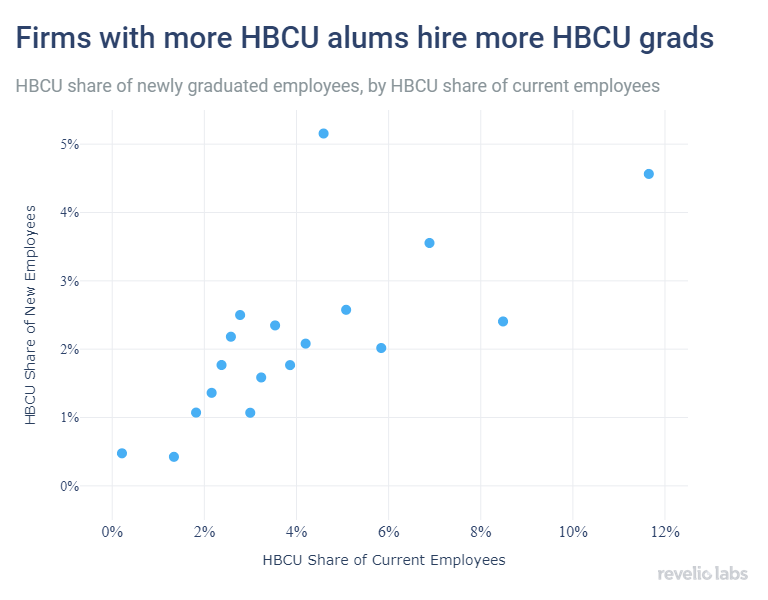How Do HBCUs Measure Up for Black Students?
Networks seem to make a big difference

Roughly 10% of Black undergraduates attend a historically Black college or university (HBCU).
Within the middle tier of colleges, Black HBCU graduates attain an average salary around 10% above that of their non-HBCU peers. In other tiers, the salary difference is negligible.
Companies with more HBCU alums tend to hire more HBCU graduates in turn.
A new generation of students is graduating into a newly uncertain labor market. For students from backgrounds underrepresented in the professional world, such as students of color, the struggle to secure a stable, well-paying job can be especially difficult. A lack of diversity on campus can make succeeding in academics hard; it can also translate into a lack of all-important industry connections.
For Black high schoolers weighing their college options, attending a historically Black college or university (HBCU) is often cited as a way to avoid falling into this trap. HBCUs were established to serve Black students when standard colleges turned them away as a matter of policy. Today they continue to serve Black students, accounting for roughly 1 in 10 Black undergraduates.


Sign up for our newsletter
Our weekly data driven newsletter provides in-depth analysis of workforce trends and news, delivered straight to your inbox!
How do HBCU alums fare in the labor market? Revelio Labs finds that HBCUers make roughly 4% more than their non-HBCU peers at similarly ranked colleges.


But this comparison doesn’t tell the whole story. When we break down this comparison by college tier using our HR data, we find that, in the middle tier of institutions, HBCUers see an annual salary boost of roughly 10%, whereas in the low tier, their effect is much smaller, and in the high tier it’s reversed. If HBCUs improve outcomes partly by generating valuable professional connections, then perhaps they are not as effective for students attending highly prestigious colleges, whose networks are simply better-connected to begin with.


The importance of networks becomes clearer when we examine where Black students end up after college. Controlling for industry and location, companies with more HBCU alums tend to take on more fresh graduates from HBCUs, our HR data show. A student’s first post-grad job so often depends on the connections made in school, and for HBCUers, these connections appear strong.


Of course, labor market outcomes aren’t everything, and salary should not be the only metric by which we evaluate a college education. That said, HBCUs appear to have an important effect in improving economic opportunities for Black students—a particularly impressive feat considering many of them have been underfunded for decades. Educators, policymakers, and researchers should continue to investigate what makes HBCUS effective, so that their benefits can be deployed for Black students more broadly.


